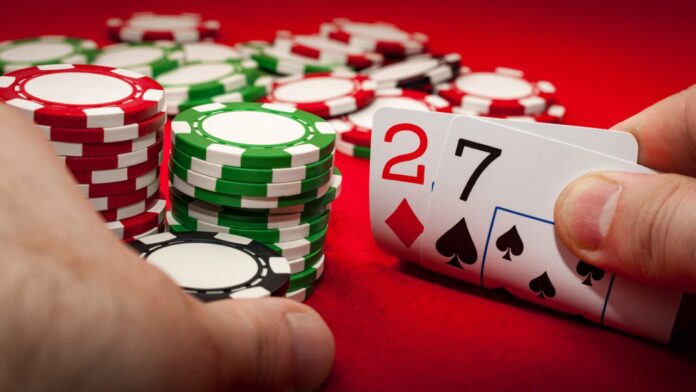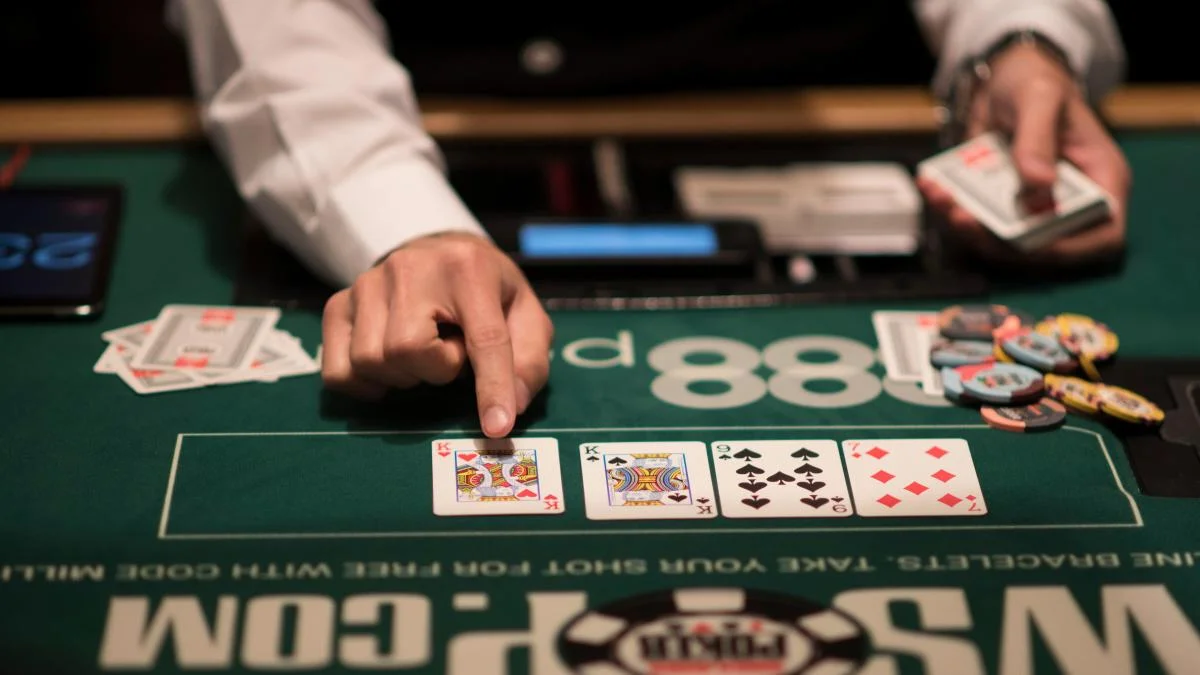People spend their whole lives trying to master their poker skills, and even the very best are still learning. Simple mathematics tells us that there are 2,598,960 potential hands of poker from a standard 52-card deck, which is an example of endless possibilities in a game of poker. Add to that the psychological side, as well as the bluffing and betting strategies, and you’ll see how poker is pretty complicated.

Learning the Basics and Winning Your First Tournament
There is no point in players trying to become the next Daniel Negreanu overnight. It is important to start small, and the first goal should be to win a tournament. Even if it has a low entry fee and the tournament itself is very low-profile, it is a step in the right direction.
Players need to understand the basics and strategies to win their first poker tournament, which means a full understanding of the rules as well as how to actually find a suitable first poker tournament to enter. A lot of users take advantage of freerolls, giving them the chance to attempt to win a poker game without parting with any money to enter. Some casinos provide these freerolls to their new and existing customers at certain times during the day.
A popular way to enter tournaments includes ‘Sit & Go’ tournaments which give players the chance to enter a game and play through a whole tournament quickly without having to pre-register or spend a huge amount of time at the table.
Every contestant should know the basics of poker, which include the simplest betting strategies and knowing the times to press and be aggressive against the times to be conservative, plus understanding bluffing and things like big blinds and small blinds. It is important for beginners to studiously get to grips with the terms and rules of the game.
For someone to win their first tournament and gain some experience playing poker, they don’t necessarily need all of the playing skills of a pro. Many of the players whose quotes we share in this guide have been playing for decades, meaning their people-reading skills have continued to evolve, but the first tournament is all about laying the groundwork and understanding the basics of the game.

Use Bluffing Sparingly
“If you never bluff, you’ll rarely get called. If you bluff all the time, you’ll always get called.” – Phil Hellmuth
Phil Hellmuth is one of the most successful poker players of all time, and he very shrewdly shared this nugget of information with other players. A lot of beginners fall into the trap of bluffing a lot. It may even work at the start, but if somebody is a serial bluffer then it doesn’t take long for good players to work them out.
Bluffing is an important strategy to master, but it can go very wrong, as Wesley Fei discovered making one of the biggest bluffs of all time, seeing him lose a fortune in the process.
Devote Time to Learning
“Poker takes a minute to learn, but a lifetime to master” – Mike Sexton
Mike Sexton was an all-time great poker player and was right to point out that those who play are always learning about the game. If somebody wants to master the art of playing poker they need to continue to learn no matter how long they have been playing for.
A tip that comes from some of the top video game players is to socialize with the gaming community, and the same applies to poker. There are so many blogs, YouTube Channels, and other community resources that players can use to continue to learn about the game of poker. For those who enjoy poker, watching the game, listening to podcasts, and reading blog posts should also be part of the fun.

Folding is Crucial
You will show your poker greatness by the hands you fold, not the hands you play.” – Dan Reed
A quote attributed to a lesser-known player, this is a very profound and useful tip for players. Folding is not always easy for new players, as they want to be involved in the action, but when they don’t have the cards it is crucial to fold on certain hands. Even if a player is a big blind, folding is often the best way to limit damage when dealt a poor hand.
Knowing when to fold can help cultivate patience, a vital quality in poker that is overlooked way to much. Being successful at poker is as much about the hands you don’t play as the ones you do. Understanding this seemingly little-to-no-relevance concept will surely aid you in making sound folding decisions.
Final Thoughts
Of course, it is impossible to condense all of the knowledge of poker professionals into a few quotes, but aspiring players should never discount the tips that the best players have shared. These insights not only provide valuable strategies but can also serve to inspire and motivate. They serve as reminders that poker is a complex and nuanced game requiring constant learning and adaptation. Tips like these often underscore the necessity of maintaining emotional equilibrium, a crucial aspect in long-term poker success.

Many top poker players have written books and created courses, such as Masterclass courses by Phil Ivey and Dan Negreanu, which give an insight into the skills and mindset of the top poker players ever, helping new players to grow their poker abilities. These resources teach the technical aspects of the game and dive deep into the psychological facets, from handling pressure to mastering bluffing techniques.
Importantly, these materials often draw on the authors’ own experiences, bringing a rich and unique perspective to the learning process. By utilizing such expert advice, players are also indirectly receiving mentorship from some of the best minds in poker.





![Calgary’s Hottest Neighborhoods for Luxury Homebuyers [2024]](https://thewashingtonote.com/wp-content/uploads/2024/04/Calgary-324x160.png)



